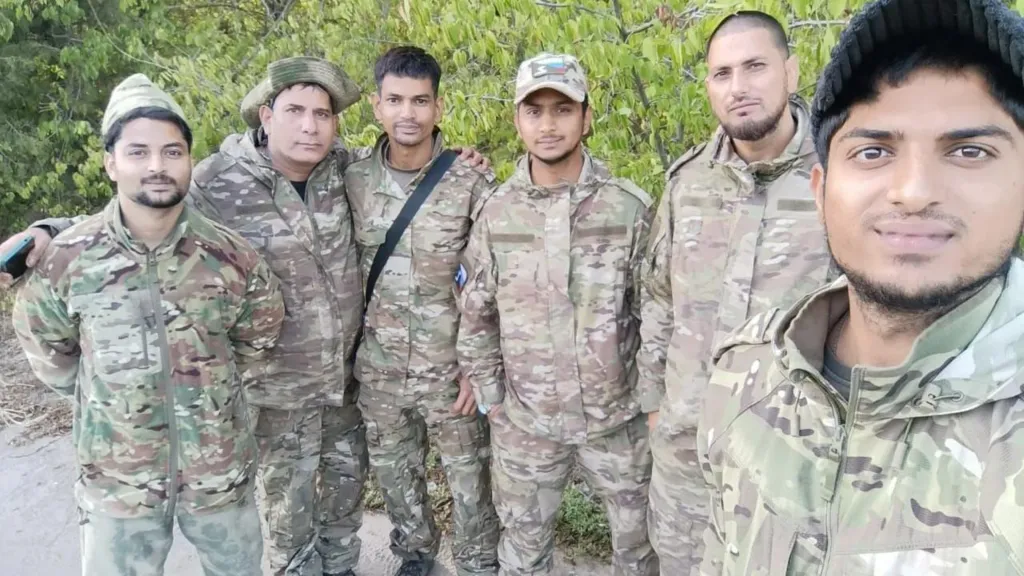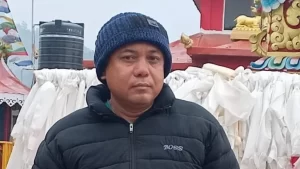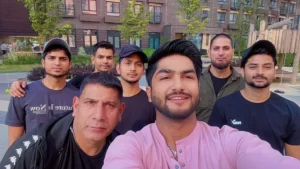‘Please save me’: The Indians duped into fighting for Russia
4 min read
The Indian government had announced that Russia had discharged dozens of the 91 Indians who were “duped” into fighting for Russian forces.

The Indian government had announced that Russia had discharged dozens of the 91 Indians who were “duped” into fighting for Russian forces.
Recently, the Indian government announced the discharge of several Indians who had been misled into fighting for Russian forces in the ongoing war in Ukraine. Of the 91 men involved, many have returned home, while efforts continue to bring the others back. BBC’s Neyaz Farooquee spoke to some of these individuals about their harrowing experiences.
“I am in panic. I don’t know if I will return safely or in a box. Please save me.” This desperate message came from Urgen Tamang, a former Indian soldier, just days before he was released from the frontlines. The war, now in its third year, has drawn in individuals from various backgrounds, many of whom were enticed by false promises of money and employment as “helpers” in the Russian army.
Unfortunately, many of these recruits, predominantly from impoverished families, found themselves thrust into the chaos of war. They were sent to combat zones in Ukraine where they faced perilous conditions—landmines, drone attacks, and snipers—often with minimal military training. So far, nine Indians have lost their lives in this conflict, and Indian authorities have arrested 19 individuals for human trafficking related to these recruitment schemes.

In July, Russian officials assured an early release for all Indian recruits after Indian Prime Minister Narendra Modi raised the issue during a visit to Moscow. Since then, 45 men have been discharged. Some have returned safely, while others, like Tamang, are still making their way back.
“I can’t believe I’m out of there,” exclaimed Sunil Karwa, an electrician from Rajasthan. After enlisting in February, he found himself stationed near Bakhmut, a city rife with intense fighting. At Moscow’s airport, Karwa reflected on the horrors he witnessed, particularly the death of a neighbor on the battlefield. “He was sent back to the front just 15 days after being injured, and now he’s paralyzed,” he recounted, highlighting the tragic cycle of violence these recruits face.
Most of the men, aged between 19 and 35, were recruited by agents operating out of India, Dubai, and Russia. Many signed contracts in Russian, a language they did not understand, driven by hopes for a better future. “It was such a quick process—just a few signatures, and we were in the army,” Karwa said.
Raja Pathan joined the Russian army as a last resort after being misled into enrolling in a fake college. “By the time I realized what was happening, I had already invested so much time and money,” he shared. Ultimately, the deaths of two friends prompted him to escape, aided by a sympathetic Russian commander.
Now in Moscow, Pathan assists others in escaping the dire situation. Mohammad Sufyan, another recruit from Telangana, returned to India on September 12, alongside five others. Despite being back home, he carries the weight of his traumatic experiences. “There was hardly any rest, and I couldn’t contact my family for 25 days,” he recalled. The most devastating moment came when his friend, Hemil Mangukiya, was killed right in front of him. “I put his body in the truck myself,” Sufyan said, grappling with the emotional aftermath of that day.

In a desperate plea for help, Sufyan and others released a video that eventually reached Indian MP Asaduddin Owaisi, who raised the matter with the government. Families of the recruits also appealed for assistance in bringing their loved ones back home. “It’s a miracle I got back,” said Azad Yusuf Kumar, another recruit who managed to escape. He recounted the horrors of being on the battlefield, where the difference between life and death was a matter of luck.
Kumar shared a frightening experience during training when he accidentally shot himself. “I had never touched a gun before,” he said. “My commander accused me of doing it on purpose to avoid combat.” Despite the injury, he considered himself fortunate to have escaped the frontline, as four men from his camp died shortly afterward.
While the recent discharges have provided relief for some, growing desperation looms for those still in Russia. Tamang, who joined in January, reported that 13 out of 15 non-Russian members of his unit had perished. Even after signing his discharge letter, he was sent back to the frontlines multiple times, deepening his mistrust in the process. As of September 15, he remained uncertain about his future, still unsure if he was truly on his way home.
His last message indicated he had left Ukraine, but the uncertainty and fear lingered, highlighting the traumatic and complex reality these men face in their quest for safety.
WhatsApp us